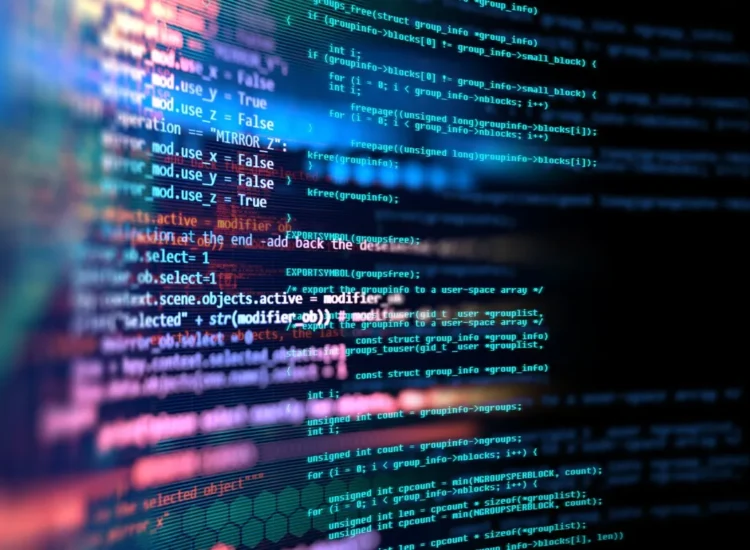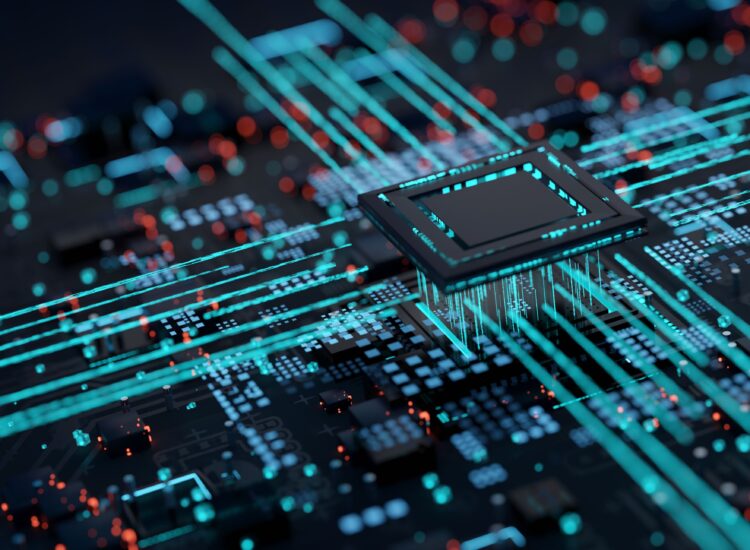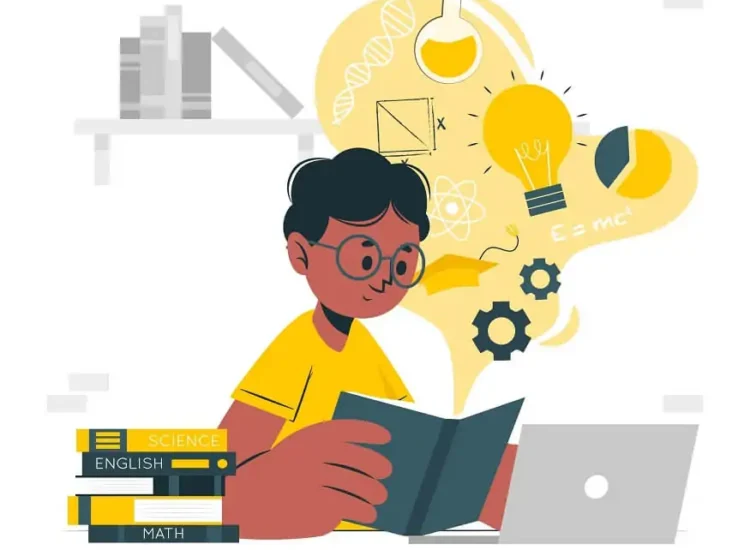Unveiling the Next Frontier: The Promise of Quantum Artificial Intelligence
In the rapidly evolving landscape of technology, two fields stand out as potentially transformative forces: Artificial Intelligence (AI) and Quantum Computing. Separately, they are pushing the boundaries of what’s possible – AI is revolutionizing data analysis, automation, and decision-making, while quantum computing promises to tackle complex problems currently intractable for even the most powerful supercomputers. But what happens when these two powerful domains converge? Enter quantum artificial intelligence, a burgeoning field that seeks to leverage the unique capabilities of quantum mechanics to create AI systems with unprecedented power and solve problems that were previously considered impossible.
Toc
- 1. The Convergence of Two Powerful Fields: What is Quantum Artificial Intelligence?
- 2. Related articles 01:
- 3. Quantum Algorithms for AI: How Quantum Computing Can Enhance Machine Learning
- 4. The Road Ahead: Challenges, Potential Applications, and the Future of Quantum Artificial Intelligence
- 5. Related articles 02:
Quantum artificial intelligence, often shortened to quantum AI or QAI, explores how quantum computing can enhance or fundamentally change the way we design, train, and utilize artificial intelligence algorithms. It’s not merely about running existing AI software faster; it’s about developing entirely new paradigms for learning, optimization, and data processing that exploit quantum phenomena like superposition and entanglement. While still in its nascent stages, the potential of quantum artificial intelligence is generating immense excitement across research institutions, tech companies, and various industries, hinting at a future where AI can tackle challenges currently far beyond our reach.
Understanding quantum artificial intelligence requires a basic grasp of both AI and quantum computing, and then seeing how their principles can intertwine. This article will explore this fascinating intersection, delving into the foundational concepts, the potential ways quantum computing can accelerate or enhance AI tasks, and the significant challenges and exciting possibilities that lie ahead for quantum artificial intelligence. As researchers and engineers continue to make strides in both quantum hardware and AI algorithms, the vision of powerful quantum artificial intelligence moves closer to reality, promising breakthroughs in fields from drug discovery and materials science to finance and climate modeling.
The Convergence of Two Powerful Fields: What is Quantum Artificial Intelligence?
Quantum artificial intelligence represents the cutting edge of computational science, situated at the nexus of AI and quantum physics. To understand this fusion, we must first briefly consider the individual components and then see why their combination holds such promise.

Defining the Intersection: AI Meets Quantum Computing
Artificial Intelligence, at its core, is about creating systems that can perform tasks typically requiring human intelligence, such as learning from experience, making decisions, understanding natural language, and recognizing patterns. Modern AI, particularly machine learning, relies heavily on processing vast amounts of data using complex algorithms running on classical computers. While incredibly successful in many domains, classical AI approaches face limitations when confronted with certain types of computational complexity, especially problems involving vast search spaces, intricate optimizations, or the simulation of quantum systems themselves.
Quantum Computing, on the other hand, is a fundamentally different paradigm of computation. Instead of relying on classical bits that represent information as either a 0 or a 1, quantum computers use quantum bits, or qubits. Qubits can exist in a superposition of both 0 and 1 simultaneously, and their states can be correlated through a phenomenon called entanglement. These properties allow quantum computers to perform certain types of calculations in ways that are exponentially faster than classical computers for specific problems.
Quantum artificial intelligence emerges from the question: how can the unique power of qubits and quantum phenomena be harnessed to improve or create new AI capabilities? It’s an interdisciplinary field drawing from computer science, physics, mathematics, and engineering. It’s not about AI running the quantum computer in the control sense (though AI can help here too), but about designing AI algorithms that utilize quantum principles or run on quantum hardware to gain a computational advantage. This could involve using quantum algorithms to speed up parts of the machine learning process, developing quantum analogues of neural networks, or using AI to interpret quantum data. The goal of quantum artificial intelligence is to unlock new levels of performance and capability for intelligent systems.
A Primer on Quantum Computing for AI Enthusiasts
For those familiar with AI but new to quantum computing, understanding a few core concepts is key to grasping the potential of quantum artificial intelligence.
The fundamental unit in quantum computing is the qubit. Unlike a classical bit (which is either 0 or 1), a qubit can be 0, 1, or a combination of both simultaneously – a state known as superposition. This means that a system of just a few qubits can represent a vast number of possibilities at the same time. For example, 2 classical bits can be in one of states (00, 01, 10, 11). But 2 qubits in superposition can effectively explore all 4 of these states at once. This parallel processing capability for certain types of problems is a key source of quantum power relevant to quantum artificial intelligence.
Another critical concept is entanglement. When qubits are entangled, their fates are linked in a way that has no classical equivalent. The state of one entangled qubit instantly influences the state of the others, no matter how far apart they are. This creates incredibly complex correlations between qubits, allowing a quantum computer to explore relationships and patterns in data that would be incredibly difficult for a classical computer to uncover. For quantum artificial intelligence, entanglement offers a way to represent highly complex dependencies in data or within AI models themselves.
Quantum computers manipulate qubits using quantum gates, which are analogous to logic gates in classical circuits but operate on superposition and entanglement. These gates are used to construct quantum algorithms, specific sequences of operations designed to solve particular computational problems by exploiting quantum properties. Famous examples include Shor’s algorithm (for factoring numbers) and Grover’s algorithm (for searching unsorted databases), which offer exponential or quadratic speedups over the best-known classical algorithms for those specific tasks. The development of quantum algorithms relevant to AI tasks is a core area within quantum artificial intelligence.
Unlike classical computers which give a deterministic output (0 or 1), the result of a quantum computation is probabilistic. When you measure a qubit, its superposition collapses to either 0 or 1. Quantum algorithms are designed such that the correct answer to the problem has a high probability of being measured. This probabilistic nature adds another layer of complexity and opportunity for quantum artificial intelligence.
Why Classical AI Needs a Quantum Boost
Classical artificial intelligence has achieved remarkable feats, powered by improvements in algorithms, the availability of massive datasets, and exponential growth in classical computing power (following Moore’s Law, though its pace is slowing). However, there are inherent limitations that a quantum boost could potentially overcome, driving the need for quantum artificial intelligence.
Firstly, many problems relevant to AI involve optimization over extremely large and complex spaces. Training deep neural networks, for example, involves finding the optimal set of weights and biases to minimize an error function – a task that can be computationally intensive and prone to getting stuck in local minima. Certain types of optimization problems, like those encountered in logistics, finance, or designing complex systems, grow exponentially harder for classical computers as the problem size increases. Quantum algorithms, such as those based on quantum annealing or the Quantum Approximate Optimization Algorithm (QAOA), have the potential to explore these vast optimization landscapes much more efficiently, potentially leading to faster and better training of AI models or solving AI-related optimization tasks.
Secondly, processing and extracting meaningful features from massive, high-dimensional datasets can be computationally prohibitive for classical algorithms. Data can have incredibly complex correlations that are difficult for classical computers to capture efficiently. Quantum computers, using entanglement, are naturally suited to representing and processing highly correlated data. Algorithms like Quantum Principal Component Analysis (QPCA) or quantum techniques for feature extraction could potentially analyze large datasets and identify relevant patterns or reduce dimensionality much faster than their classical counterparts, providing better input for classical or quantum AI models.
Furthermore, simulating complex physical or chemical systems, which is crucial for applications in materials science, drug discovery, and climate modeling – areas where AI is also increasingly used – is a task that becomes intractable for classical computers beyond a certain size. Quantum computers are inherently designed to simulate quantum systems, offering a potential exponential speedup. This capability could feed into quantum artificial intelligence by providing training data or allowing AI models to explore complex molecular or material spaces impossible to simulate classically.
3. https://lifeify.net/mmoga-once-human-private-server-a-players-perspective/
4. https://lifeify.net/mmoga-the-sound-of-tomorrow-exploring-voice-artificial-intelligence/
5. https://lifeify.net/mmoga-find-the-best-personal-web-hosting-for-your-small-business/
Finally, the increasing computational demands of classical AI models require vast amounts of energy. Quantum computation, when it becomes practical, could potentially offer more energy-efficient ways to perform certain calculations, addressing the growing sustainability concerns associated with large-scale AI training and deployment.
In essence, while classical AI excels at many tasks, there are fundamental computational barriers it faces. Quantum artificial intelligence aims to use the non-classical power of quantum computing to break through these barriers, enabling AI to tackle problems of greater scale and complexity and potentially discover new ways to learn and represent information.
Quantum Algorithms for AI: How Quantum Computing Can Enhance Machine Learning
The core of quantum artificial intelligence lies in developing and implementing quantum algorithms that can perform computational steps relevant to AI tasks more efficiently than classical algorithms. This fusion creates the field of Quantum Machine Learning (QML).
Quantum Machine Learning (QML): New Ways to Learn
Quantum Machine Learning (QML) is a subfield of quantum artificial intelligence focused specifically on designing quantum algorithms for machine learning tasks or using classical machine learning to analyze quantum systems. The goal is to leverage quantum effects to improve algorithms for tasks like classification, regression, clustering, and dimensionality reduction.
One area of focus is developing quantum algorithms for core ML tasks. For example, researchers are exploring Quantum Support Vector Machines (QSVMs), a quantum analogue of the popular SVM algorithm used for classification. While the exact speedup compared to the best classical SVMs is still an active area of research, QSVMs show promise for handling high-dimensional data more efficiently by mapping data into a quantum feature space. Similarly, Quantum Principal Component Analysis (QPCA) aims to perform dimensionality reduction faster for certain types of data, potentially speeding up the preprocessing step for both classical and quantum ML models.
Another approach involves variational quantum algorithms for machine learning. These algorithms use a hybrid approach, combining a quantum computer to perform complex calculations on qubits with a classical computer to optimize parameters. This is particularly relevant in the current NISQ (Noisy Intermediate-Scale Quantum) era, where quantum computers are limited. Algorithms like the Variational Quantum Eigensolver (VQE) or QAOA, originally designed for problems like chemistry or optimization, are being adapted for machine learning tasks, such as training simple quantum neural networks or performing classification. These hybrid algorithms aim to find the best possible solution by iteratively adjusting parameters on a classical computer based on measurements from the quantum processor.
Furthermore, researchers are exploring quantum neural networks. These are theoretical or experimental constructs that use qubits and quantum gates as the building blocks, analogous to neurons and synapses in classical neural networks. The idea is that the quantum mechanical properties, like superposition and entanglement, could allow these networks to process information or learn in fundamentally different, potentially more powerful, ways than classical neural networks, especially for certain types of data or problems related to quantum systems.
QML is not just about speeding up existing methods; it’s also about exploring new quantum-inspired approaches to learning that don’t have direct classical counterparts. The unique way quantum states represent information and the operations possible with quantum gates could lead to entirely novel learning models capable of recognizing patterns or correlations that are invisible or computationally inaccessible to classical ML algorithms. The field of quantum artificial intelligence through QML is actively seeking these fundamentally new approaches.
Quantum Optimization for AI Models
Optimization is a critical component of many AI tasks, especially in training machine learning models. Finding the optimal set of parameters for a complex model often involves navigating a vast and complicated landscape of possible solutions to find the one that minimizes an error function. This can be computationally very demanding for classical computers, particularly as models and datasets grow larger. Quantum artificial intelligence is exploring how quantum optimization algorithms can provide a significant advantage here.
Quantum optimization algorithms, such as Quantum Annealing (used in systems like the D-Wave processor) and the Quantum Approximate Optimization Algorithm (QAOA), are designed to find the minimum (or maximum) of a mathematical function. These algorithms exploit quantum principles like quantum tunneling and superposition to explore the optimization landscape more effectively than classical methods, which can get stuck in local minima.
How does this apply to AI? Training a neural network is, at its heart, an optimization problem – finding the weights and biases that minimize the difference between the model’s output and the desired output. Quantum artificial intelligence research is investigating if quantum optimization algorithms can be used to train neural networks faster or find better parameter sets, potentially leading to more accurate or efficient AI models. While current quantum computers are not large enough to train state-of-the-art deep learning models entirely using quantum algorithms, hybrid classical-quantum approaches are being explored where the quantum computer handles specific, computationally intensive parts of the optimization process.
Beyond training, many AI applications involve solving optimization problems. For example, in logistics, AI might be used to find the most efficient delivery routes (a form of the Traveling Salesperson Problem), which is a hard optimization problem. In finance, AI might optimize portfolio allocation. Quantum artificial intelligence can leverage quantum optimization algorithms to potentially solve these applied AI problems more efficiently, leading to better decisions and more optimal outcomes in various industries. The ability of quantum computers to explore many possible solutions simultaneously makes them potentially well-suited for these types of complex optimization challenges that classical AI solutions might struggle with at scale.
Quantum Approaches to Data Analysis and Feature Extraction
Before feeding data into an AI model, it often needs to be processed, cleaned, and transformed. This step, known as data analysis and feature extraction, is crucial for the performance of the AI. Quantum artificial intelligence is looking at how quantum techniques can speed up or improve these data preprocessing steps.
Analyzing massive datasets to find hidden patterns, correlations, or the most relevant features (feature extraction) can be computationally expensive. Classical algorithms for tasks like clustering, dimensionality reduction (like PCA), or searching large databases can become slow as the volume and complexity of the data increase.
Quantum algorithms like Grover’s algorithm offer a quadratic speedup for searching unsorted databases, which could be relevant for certain data retrieval or matching tasks within an AI pipeline. As mentioned earlier, Quantum Principal Component Analysis (QPCA) is being explored for faster dimensionality reduction, especially for high-dimensional data that is common in fields like image processing or genomics – areas where AI is heavily applied.
Furthermore, the ability of quantum computers to efficiently handle highly correlated data through entanglement could lead to new methods for feature extraction that capture complex relationships within the data that classical methods might miss or find difficult to compute. Imagine data points represented as quantum states; quantum operations could potentially reveal connections between them in ways that are not straightforward classically. This could provide richer, more informative features for AI models to learn from.
While large-scale quantum random-access memory (QRAM) – the quantum analogue of classical RAM – is still a significant technological challenge, progress in this area is crucial for quantum algorithms to efficiently load and process large classical datasets. Once QRAM becomes viable, the potential for quantum algorithms to accelerate data analysis and feature extraction steps within quantum artificial intelligence pipelines will be significantly enhanced, potentially leading to faster training and improved performance for AI models.
The Road Ahead: Challenges, Potential Applications, and the Future of Quantum Artificial Intelligence
While the theoretical potential of quantum artificial intelligence is immense, the field is still in its early stages. Significant challenges must be overcome before quantum AI can deliver on its full promise and begin to impact real-world applications in a transformative way.

Current Challenges in Developing Quantum AI
Developing functional and impactful quantum artificial intelligence faces hurdles on multiple fronts, spanning hardware, software, and theoretical understanding.
2. https://lifeify.net/mmoga-high-performance-vps-hosting-for-e-commerce-success/
4. https://lifeify.net/mmoga-the-best-cloud-storage-hosting-for-small-businesses/
5. https://lifeify.net/mmoga-cloud-app-hosting-the-ultimate-guide-for-startup-founders/
Firstly, quantum hardware is still limited. Current quantum computers, often referred to as NISQ (Noisy Intermediate-Scale Quantum) devices, are relatively small (tens or a few hundred qubits) and prone to errors due to decoherence (qubits losing their quantum properties) and noise. They lack the large number of high-quality, error-corrected qubits needed to run the most powerful quantum algorithms envisioned for exponential speedups. Building larger, more stable, and fault-tolerant quantum computers is a massive engineering challenge that is essential for scaling up quantum artificial intelligence.
Secondly, the development of quantum algorithms specifically for AI tasks is complex. While we have theoretical quantum algorithms like Shor’s or Grover’s for certain problems, translating many classical AI problems into a format that can leverage a quantum speedup on available quantum hardware is non-trivial. New quantum algorithms and heuristics are needed, particularly those suitable for the limitations of NISQ devices (like variational algorithms). This requires a deep understanding of both quantum mechanics and machine learning.
Thirdly, software and tools for quantum programming and integrating classical and quantum systems are still maturing. Programming quantum computers is different from classical programming. User-friendly tools, compilers, and libraries that allow AI researchers to easily experiment with and deploy quantum AI algorithms are still under development. Seamlessly integrating quantum co-processors into existing classical AI workflows also presents technical challenges.
Finally, there is a need for a larger workforce with expertise in both quantum computing and AI. This is a highly interdisciplinary field, and finding individuals with deep knowledge in both domains is challenging, which can slow down research and development progress in quantum artificial intelligence. Overcoming these technical and talent challenges requires sustained investment in research, development, and education.
Transformative Potential Applications of Quantum AI
Despite the challenges, the potential applications of quantum artificial intelligence are vast and could lead to transformative breakthroughs in numerous fields. The ability to process complex data and solve difficult optimization problems more efficiently could revolutionize industries.
One of the most talked-about areas is drug discovery and materials science. Developing new drugs or designing novel materials often involves simulating complex molecular interactions and searching vast chemical spaces for optimal configurations. These are computationally intensive tasks. Quantum AI could potentially analyze biological data, predict molecular properties, simulate chemical reactions with greater accuracy, and optimize the design of new molecules or materials far faster than classical methods, accelerating the discovery process.
In finance, quantum AI could be used for more sophisticated risk analysis, fraud detection, algorithmic trading strategies, and portfolio optimization. Financial markets involve massive datasets and complex interdependencies; quantum algorithms could potentially find patterns and optimize decisions in ways currently impossible, leading to more accurate predictions and better financial models.
Optimization problems are ubiquitous, and quantum AI’s strength in this area has broad implications. This could impact logistics (optimizing supply chains and transportation routes), manufacturing (optimizing factory scheduling and resource allocation), and even climate modeling (running more complex simulations and finding optimal strategies for emissions reduction).
Quantum AI could also potentially lead to advancements in more generalized AI. New quantum approaches to learning and data representation might enable AI systems to understand and interact with the world in more nuanced and powerful ways. While still speculative, some researchers believe quantum principles could even play a role in understanding complex systems like the human brain, potentially leading to new insights into consciousness or more brain-like AI architectures.
While these transformative applications are likely still years away and dependent on the development of fault-tolerant quantum computers, the research being done in quantum artificial intelligence today is laying the groundwork for a future where AI can tackle some of humanity’s most complex challenges.
The Future Landscape of Quantum Artificial Intelligence
The field of quantum artificial intelligence is dynamic and rapidly evolving. The future landscape will likely involve a combination of continued hardware advancements, the development of new algorithms, and increasingly sophisticated hybrid classical-quantum approaches.
In the near term, we will likely see continued research on NISQ-era quantum machine learning algorithms. These hybrid algorithms that leverage both classical and small-scale quantum computers will be crucial for demonstrating quantum advantage on specific, smaller-scale AI problems and gaining practical experience. As quantum hardware improves, these algorithms will become more powerful.
Further in the future, as fault-tolerant quantum computers with a large number of qubits become available, we can expect to see the implementation of more complex and potentially exponentially faster quantum algorithms for AI tasks, enabling truly transformative applications. This era will require robust quantum software stacks and seamless integration with classical computing infrastructure.
The development of quantum artificial intelligence is not just about building quantum computers; it’s equally about advancing the theoretical understanding of how quantum mechanics can be used for learning and intelligence, and designing the algorithms that can run on future machines. This includes exploring novel quantum neural network architectures and finding ways to represent and process data in quantum states effectively.
Ultimately, quantum artificial intelligence may not replace classical AI entirely. It’s more likely that quantum processors will act as powerful accelerators for specific, computationally hard parts of AI workflows, working in tandem with classical computers. The future of AI might be inherently hybrid, leveraging the strengths of both classical and quantum computation.
The journey towards realizing the full potential of quantum artificial intelligence is a long one, filled with scientific and engineering challenges. However, the promise of creating intelligent systems capable of solving problems that are currently out of reach fuels intense research and investment. As our understanding deepens and quantum technology matures, quantum artificial intelligence stands poised to become a defining technology of the 21st century, unlocking new frontiers in science, technology, and our understanding of intelligence itself.











